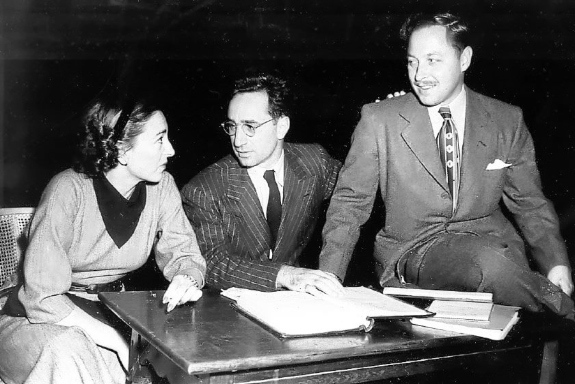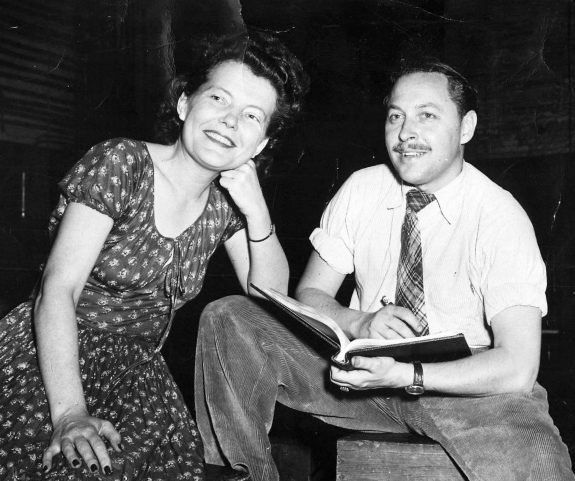The critically and commercially successful Splendor in the Grass (1961), directed by Elia Kazan and starring Warren Beatty and Natalie Wood in the leads, was Beatty's screen debut. At age 23, Beatty was an ambitious young man who —in Kazan's words— "wanted it all and wanted it his way". Natalie Wood said in interviews that throughout production of Splendor she and Beatty had not gotten along, describing the actor as being "difficult to work with". Others shared her opinion, including Don Kranze, assistant director on Splendor. "Warren was a pain in the ass", recalled Kranze. "He was very young, anyway, but his emotional maturity was about thirteen... we all sort of felt about Warren that he's an immature boy playing a man's game." According to Splendor's production designer Richard Sylbert (a good friend of Beatty's), Beatty was going to do whatever he wanted to do, not caring what anybody thought.
 |
| Warren Beatty, Elia Kazan and Natalie Wood on the set of Splendor in the Grass. Long after production of the film had ended Beatty and Wood entered into a tumultuous two-year relationship. |
May 22, 1963
Dear Warren:
Forgive the impertinence of a friend. I really do like you, and it disheartens me when I hear from the underground that you are giving everybody a bad time in Maryland. I know rumors are unreliable and it’s not right to repeat them. But, damn it, they dishearten me. I always say: "Warren at bottom is a damn fine guy!" But there’s some contradiction all through your behavior. On the one hand you say that you want to be a movie star. You’ve said it again and again not only to me but to lots of people. But I must tell you that becoming a first flight movie star depends, as you well know, on working with the elite directors on the real good stories. And when these director-glamour boys hear that you are being "difficult" their only reaction can be: "Who needs it?"
It seems to me that you must find a way of legitimately asserting yourself and even forcibly making your opinions and impulses felt. While, at the same time, being agreeable to work with, decent to deal with, fun to be with, and a contributor to an overall effort. It’s very regrettable that so many people think of you as a special problem. You have so much: intelligence, talent, sensitivity. You are handsome, vigorous, physically able. But all this can be nullified or badly handicapped by the kind of stories — true, part true, quite false, whatever — that have been getting back to me here.
As I said, it’s possibly impertinent of me to write you this way. I am not your father or your brother, only a friend. But think about what I say.
Yours,
Source: The Selected Letters of Elia Kazan (2014), edited by Albert J. Devlin

.jpg)



.jpg)

.jpg)
.jpg)
.jpg)

.jpg)




















